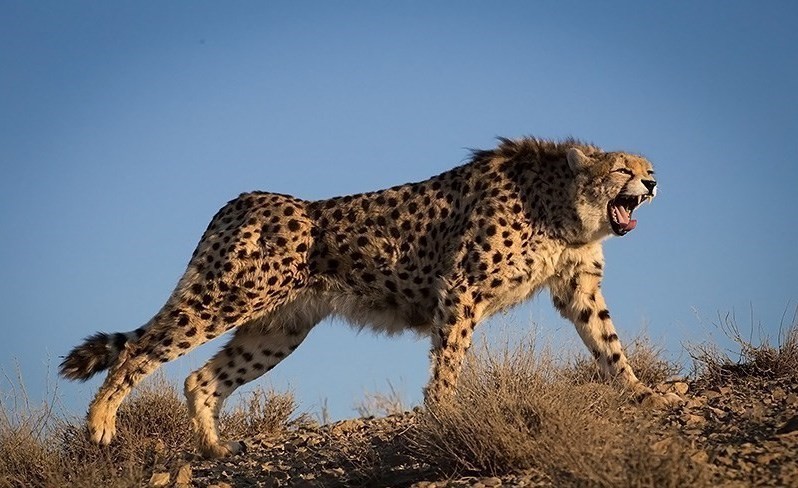Iran is an Islamic country in Asia and the people are not given much freedom, as they follow a strict version of Islam.

In some respects this is meant that the wildlife in Iran has done reasonably well since the 1979 Revolution. Much of this country is desert but the ecosystem has been significantly depleted over the last couple of centuries. Into the 19th century Asiatic Lions still roamed parts of Iran.
Perhaps the one thing that Iran is known for in the Natural World is to be the last surviving habitat of the Asiatic cheetah.
However as with many countries, conservation is not a high priority of the Iranian government, and as such the majority of conservation work is done by NGOs and charities from abroad.
However, as a relatively closed country there is a lot of suspicion, and over the last few weeks eight conservationists have been arrested and charged with spying and been given prison sentences up to 10 years.
The asiatic cheetah hovers on the edge of extinction and so it is highly important that the conservation work there has been going on is not interrupted. In all parts of the world that cheetahs have been found they have always lived at low densities, which means that large reserves are required and a local population that is willing to live alongside the cheetahs.
Current estimates of the Iranian cheetah population only number around 50 animals which means that they are on the brink of extinction. Given the right help and support of government this population should be able to recover, and if this was to occur it could supply the founder members for repopulating India and other Asian countries with their lost cheetahs. As things stand, conservation is quite rightly not a priority- countries should take care of their population before worrying about wildlife. However, recent moves are concerning as while we recognise developing countries might not have the resources to look after its wildlife itself, Iran has been highly suspicious of the conservationists that are working to save Asiatic cheetah in its last wild home, amongst other wild species. Iran has accused various groups of spying on Iran, while working on its conservation goals.
Given that there are only around 50 wild cheetahs, if the government will not work to conserve them, and they are also going to make it impossible for NGOs to take up this work, the Asiatic cheetah will disappear relatively fast.











